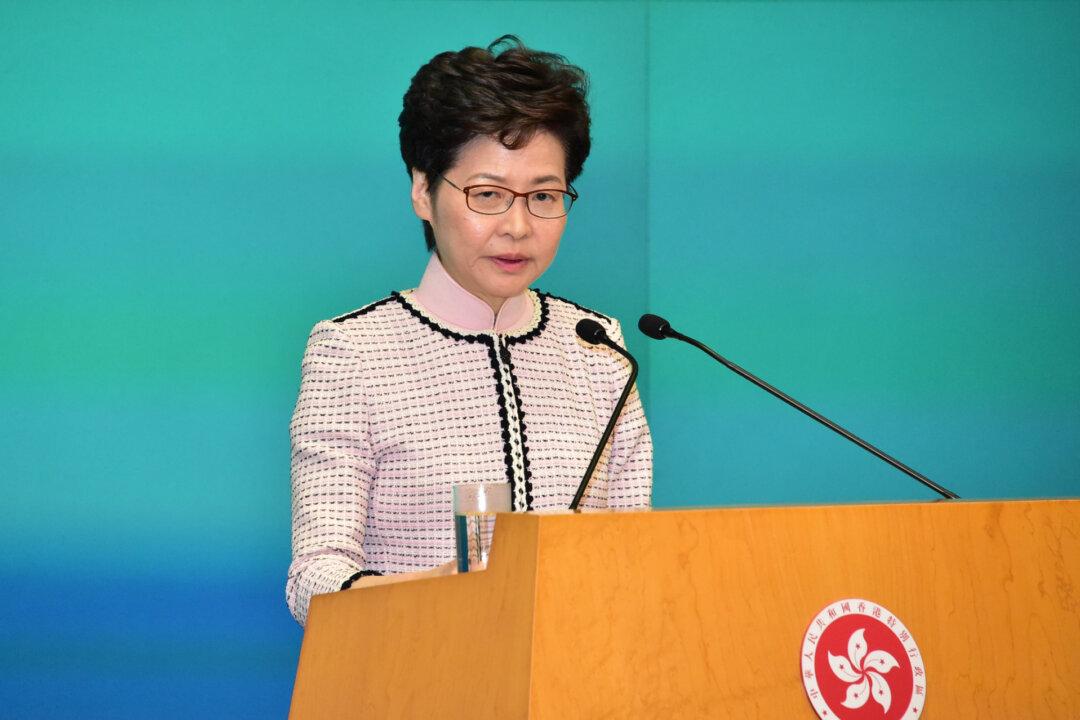Hong Kong leader Carrie Lam’s policy address drew sharp criticism from lawmakers in both the pro-Beijing and pro-democracy camps.
On Oct. 16, Lam was scheduled to give her address within the city legislature’s chambers, but after she was jeered out of the room by members of the pro-democracy camp, she ended up giving her address via video.





